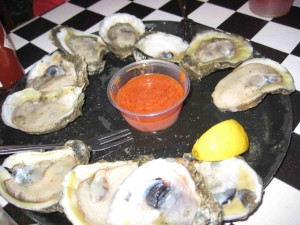The Dutch Food Safety and Health Authorities issued a warning (computer translated) against the consumption of raw, improperly cooked shellfish (mainly oysters) harvested by individuals in the eastern part of the Westerschelde river in response to the 45 litres of concentrated live polio virus solution accidentally released into Belgium water sources by Glaxo SmithKline earlier this month.
 The Netherlands National Institute for Public Health and the Environment (RIVM) said in a release Monday (computer translated), The risk of infection with the poliovirus is very small. Since its release to the River Avenue, the concentration is diluted so much that the water itself is not a threat. However, shellfish filter water and the amount of virus can be higher than in the shell than in the water. Even then the chance to get infected even very small. But in the Netherlands, we are very cautious when it comes to polio. Along the Westerschelde are a number of municipalities with low vaccine coverage where many children are not protected against diseases like polio . When it comes poliovirus in such a community, there is great likelihood that many people get sick.
The Netherlands National Institute for Public Health and the Environment (RIVM) said in a release Monday (computer translated), The risk of infection with the poliovirus is very small. Since its release to the River Avenue, the concentration is diluted so much that the water itself is not a threat. However, shellfish filter water and the amount of virus can be higher than in the shell than in the water. Even then the chance to get infected even very small. But in the Netherlands, we are very cautious when it comes to polio. Along the Westerschelde are a number of municipalities with low vaccine coverage where many children are not protected against diseases like polio . When it comes poliovirus in such a community, there is great likelihood that many people get sick.
Belgium gave no such recommendations as the country’s polio vaccination rates are better than the Netherlands, according to the RIVM.
